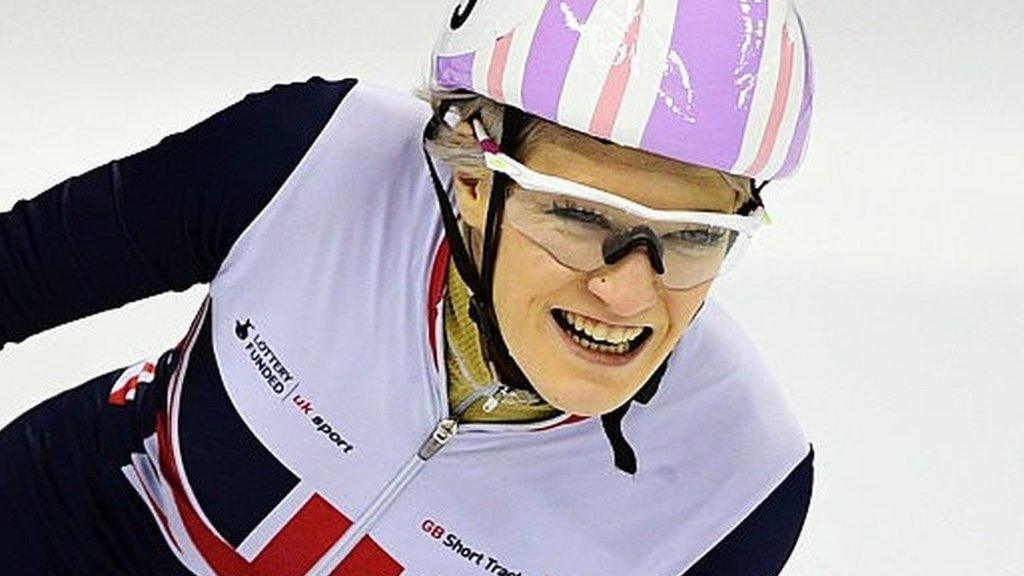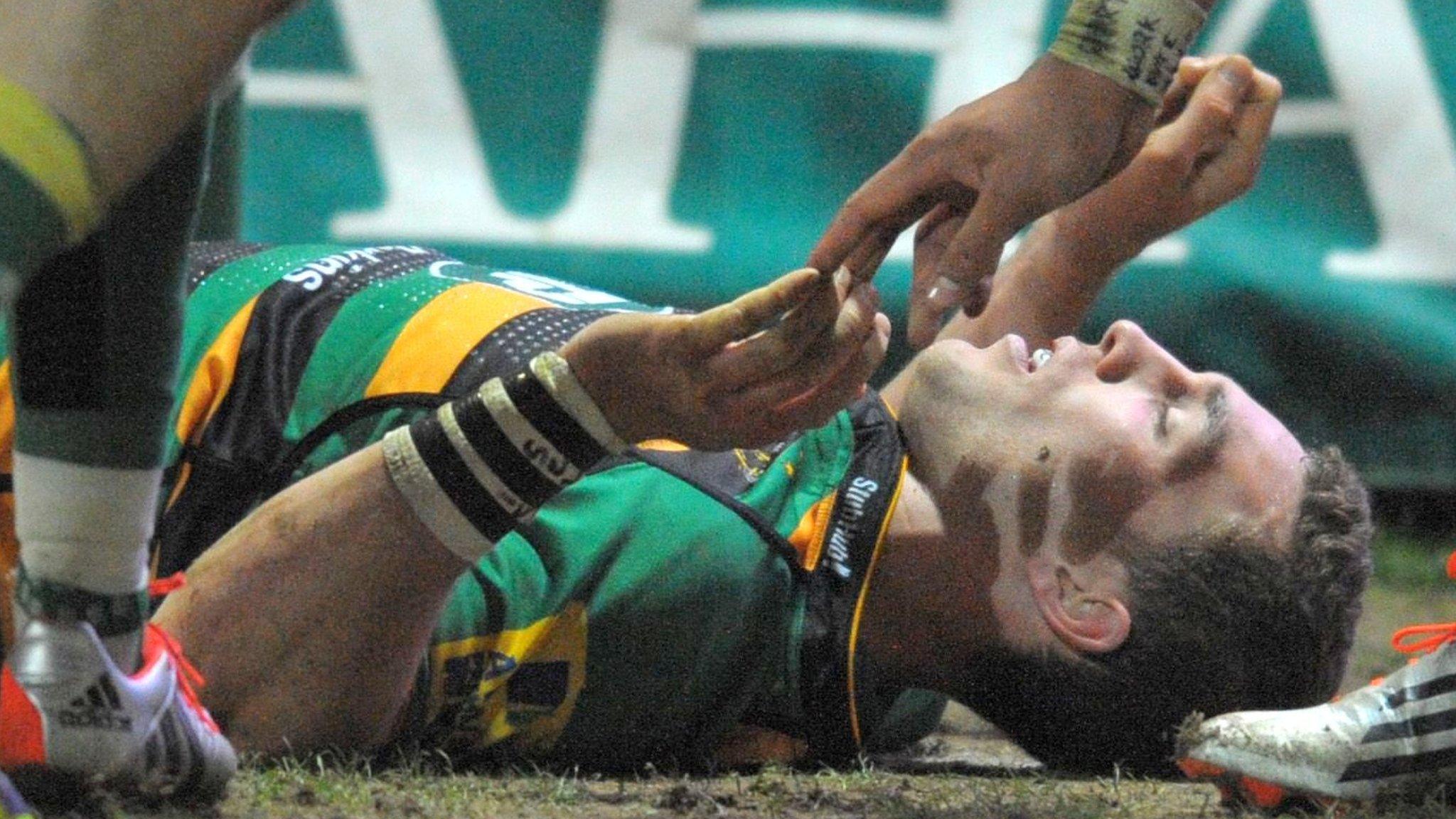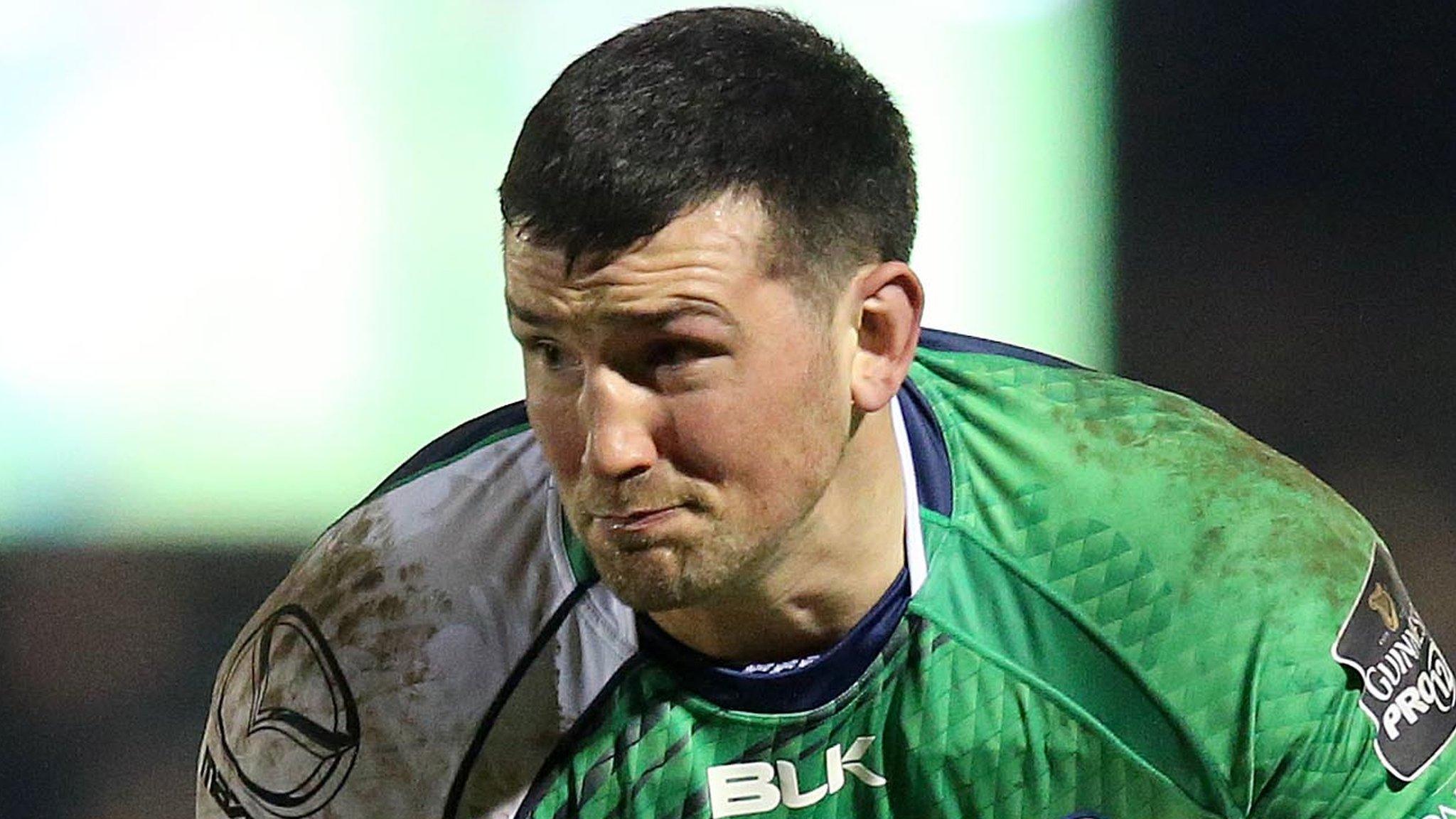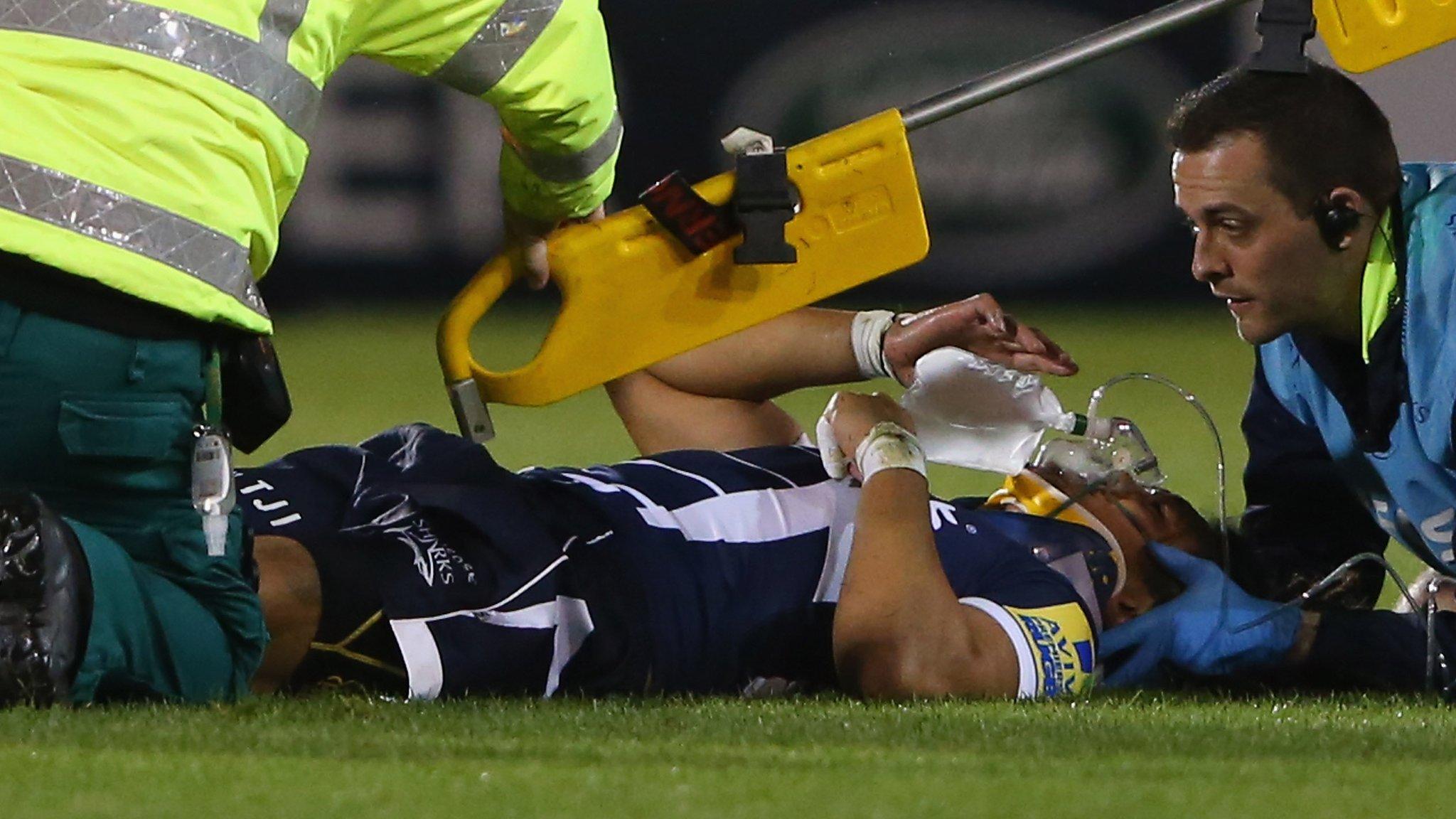Rowan Cheshire: Concussions left me with panic attacks, but Olympic hope remains
- Published
- comments
The freestyle skier with a second chance
The Sochi Olympics were historic for Team GB. They won a record-equalling four medals, including a first ever medal on snow in Jenny Jones' snowboard slopestyle bronze.
Halfpipe skier Rowan Cheshire was also being talked about as a medal prospect in Russia having won a World Cup a month earlier. But her Games ended dramatically before her event began.
The then 18-year-old was training on the Olympic halfpipe at the Rosa Khutor Extreme Park, when she made a mistake. Cheshire landed on her head, knocking herself unconscious and breaking her nose.
"I don't remember anything, just waking up in hospital and wondering what the hell was going on," she told BBC Sport.
It resulted in a severe concussion and was the first of three head injuries over the next 18 months, which Cheshire said caused "severe side-effects" that changed her life and almost saw her leave the sport.
"It's not just a headache or a little bruise to the head, there's a lot of backlash - I couldn't even look at my phone without getting migraines," said the skier.
"As well as the physical stuff, there was the emotional side - I'd get anxious and have a breakdown or a panic attack at just little situations and have to come home.
"After the Olympics I wouldn't be able to get on the train by myself and that's weird for me as an athlete because I travel everywhere, but I wouldn't do it without my mum with me."
British freestyle skiing head coach Pat Sharples has known Cheshire since she was a young teenager, trying out the sport on a dry slope in Stoke.
"All the complications started in Sochi with the horrendous crash," he told BBC Sport. "The two concussions after that weren't anything like as huge as she'd had before, but it still triggered a lot of difficulties.
"It was new territory for us and a huge learning curve for everyone on the team as we'd never had to deal with anything like this.
"We were told it was 50/50 as to whether she would get back to fitness, but we just wanted her to be OK. It wasn't about her being back on skis."
Cheshire spent months working with her psychologist, Dave Collins, to overcome the anxiety of putting her body and mind on the line again.
"I did go through some doubts - I think it's only natural after a bad injury as it knocks your self-confidence and your whole thought process about the sport," she said.
Cheshire 'can't recall anything' of crash
"I was quite negative, but getting into gymnastics to go through some of the movements and seeing my psychologist really helped me be more positive about getting back on the snow."
After two years out she made an impressive return, finishing fourth at the second-tier Copper Mountain Revolution Tour event in Colorado, USA in December.
She has subsequently achieved the minimum Olympic qualification standard with a top-30 finish in the season-opening halfpipe World Cup event - again in Copper Mountain - and followed that up with 14th in Mammoth, USA, earlier this month.
Sharples credits Cheshire's parents, Barbara and Mark, for a "huge" role in her recovery and believes Cheshire is now an improved athlete following her concussion battles.
"She's more determined than ever," he said. "She's much stronger, focused and her work-ethic increased.
"Rowan's had to become this new athlete to get back and not only has she gained more experience, but she works so hard in the gym as well as when skiing and is a better all-round athlete than before."
Concussion: How Premiership is tackling concussion
In Molly Summerhayes - sister of Sochi Olympian Katie - and Youth Olympic champion Madi Rowlands, Cheshire knows she has serious competition for a place in Pyeongchang, which start in a year's time on 9 February 2018.
However, she has been told by medical consultants that her three career concussions do not put her at any greater risk of further complications and, having overcome the odds by returning to the slopes, the 21-year-old is determined to make up for lost time.
"I'm actually feeling quite positive and have some new tricks in my head that I want to do," she told BBC Sport.
"It would mean the world [to qualify for Pyeonchang] because it would be a second chance to show the world what I can do, which I didn't get to do last time.
"I'm really looking forward to it and hopefully doing my best."
- Published9 February 2017

- Published14 October 2016

- Published31 January 2017

- Published3 February 2017
